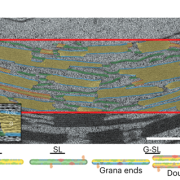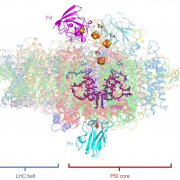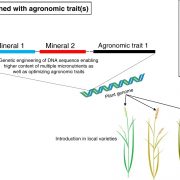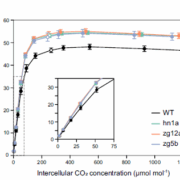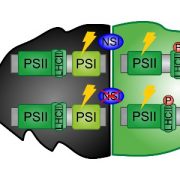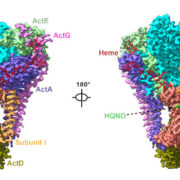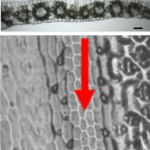Synthetic biogenesis of chromoplasts from leaf chloroplasts (bioRxiv)
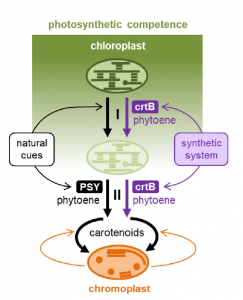 Chromoplasts are a type of plastid, usually found in fruits and flowers, that can accumulate large amounts of carotenoids including beta-carotene (pro-vitamin A). It has been proposed that increasing chromoplast formation could be a way to enhance human consumption of vitamin A. In a new report, Llorente et al. show that they have promoted chloroplast-to-chromoplast transformation in leaves by synthetically overproducing the first committed step of the carotenoid pathway, phytoene synthase. This study shows a good example of how synthetic biology could benefit agriculture and reveals new insights into chromoplast formation. It also demonstrates that loss of photosynthetic competence and overaccumulation of carotenoid are prerequests, not just consequences, of chromoplast differentiation. (Summarized by Nanxun Qin) bioRxiv 10.1101/819177
Chromoplasts are a type of plastid, usually found in fruits and flowers, that can accumulate large amounts of carotenoids including beta-carotene (pro-vitamin A). It has been proposed that increasing chromoplast formation could be a way to enhance human consumption of vitamin A. In a new report, Llorente et al. show that they have promoted chloroplast-to-chromoplast transformation in leaves by synthetically overproducing the first committed step of the carotenoid pathway, phytoene synthase. This study shows a good example of how synthetic biology could benefit agriculture and reveals new insights into chromoplast formation. It also demonstrates that loss of photosynthetic competence and overaccumulation of carotenoid are prerequests, not just consequences, of chromoplast differentiation. (Summarized by Nanxun Qin) bioRxiv 10.1101/819177


